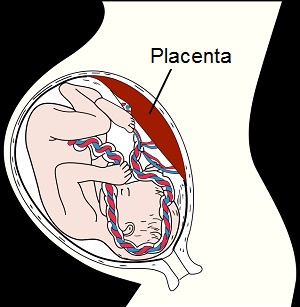Creating Eye Health Vitamins for Premature Infants is one important aim of Zietchick Research Institute
ZRI from Kindea Labs on Vimeo.
Are Eye Health Vitamins Necessary?
Are eye health vitamins necessary for normal, full-term infants who breastfeed?

Generally speaking, the answer is NO! Breast milk is the gold standard
for infant nutrition. Breast milk contains all the nutrients that a
full-term infant needs for proper growth and development of their eyes,
their brain and for all of their organ systems. No vitamins
are needed to optimize eye health for normal infants who breastfeed.
How about eye health vitamins for normal infants who don’t breastfeed?
Commercially-available infant formulas are also considered to be an excellent primary source of nutrition for newborns. Although scientists have not yet been able to craft an infant food with all of the nutritional and immunological benefits of breast milk, the ingredients used in baby formulas are regulated by the FDA (U.S. Food and Drug Administration). Infant formulas in the U.S. and abroad are required to contain enough vitamins and minerals to properly support all aspects of infant development including babies’ eyes. For example, infant formulas, like breast milk, contain lutein. Lutein is a nutrient that absorbs certain types of light that can injure important cells in the retina. In addition, lutein protects the eyes against cellular damage that can be caused from an excess of reactive oxygen species (which are naturally occurring oxygen by-products that result from oxidative stress). All in all, formula-fed babies, like breast-fed babies, do not require special eye vitamins.
Would premature babies benefit from eye health vitamins?
The answer to this question is tricky since the answer depends on many factors such as the number of weeks that the baby was born before his/her due date as well as the infant’s birthweight. Let’s begin by discussing the nutrition requirements for premature babies in general. When babies are born several weeks early, their organs, especially their lungs, eyes and gastrointestinal systems, are very immature and thus, they may need extra quantities of protein, electrolytes and minerals to sustain sufficient growth. In order to avoid deficits in energy, minerals and vitamins in very premature infants, mother’s breast milk may need to be supplemented with multi-component breast milk fortifiers.
If the mom is not breast-feeding or using banked breast milk, then specially-designed preterm infant formulas may be used which contain greater calories per ounce, more protein, and higher levels of vitamins and minerals than formulas meant for full term babies. Neonatologists (pediatricians who specialize in the care of premature infants) are best suited to advise the mom on the proper selection of a formula for these fragile infants.
Eye Supplement Availability
Are any eye health vitamins currently available for premature babies?
Retinopathy of prematurity, also called ROP, is a common eye disorder in babies who are born more than 8 weeks early or who are born with a very low birth weight (of less than 1500 grams or 3.3 lbs). An infant’s eye is not usually fully developed until the end of a full term pregnancy (or sometimes not until week or two after birth). The more premature a baby is, the more immature the baby’s eye is at birth and the higher the likelihood of that baby developing vision problems. Currently, there are no eye supplements specifically designed to prevent retinopathy of prematurity.
What is Zietchick Research Institute, LLC (ZRI) doing to change all this?

When babies are born early, they are deprived of nutrients from the placenta that they would have received if they had stayed in the womb longer. In other words, the longer that a baby develops in utero, the more exposure the fetus has to growth factors produced by the placenta itself. We, at Zietchick Research Institute, are examining the effect of nutrients synthesized by the placenta on infant eye development. Our plan is to create the world’s first eye drop for premature newborns to replace the lost placental nutrients that stimulate eye maturation. Zietchick's unique eye health vitamins will allow the eyes of premature babies to develop more normally outside the womb, and thus prevent ROP from ever occurring.
Want to Keep Up-to-Date on Zietchick's Research?
Subscribe to The Zietchick Family Eye Health Newsletter: